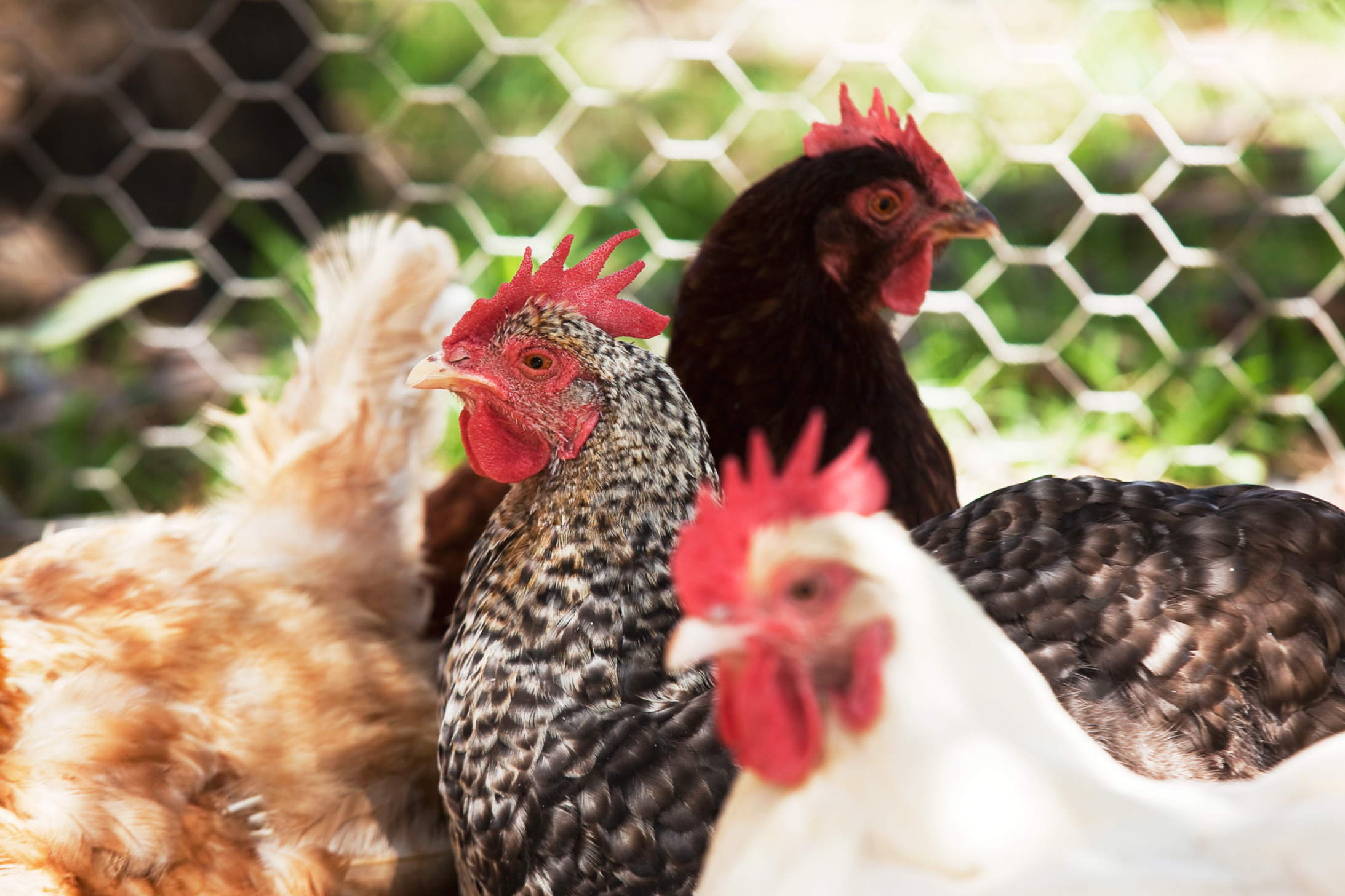
Pecking Orders
There really is a pecking order in every henhouse, and it’s worth your while to give the newcomers a hand, to help them settle in, says Megg Miller.
With fowls it really is a girls’ world. Hens lay eggs regardless of whether a rooster is present and organise their pecking order to include a top hen. What about chickens? The services of a rooster are necessary but many people just buy fertile eggs and so bypass keeping a male.
Hens also go broody without any input from a rooster. These are natural female activities. This independence also extends to henhouse behaviour.
Power plays
The top hen will deal the odd punishing peck to contrary pen mates and call them when titbits are discovered. Occasionally she may let power go to her head and emit an amateurish crow. Yes, hens are capable of a subdued ‘cock-a-do’. It’s not as loud or intrusive as the crowing of a rooster but may require an explanation to neighbours.
Hens can crow and lay, an odd one will go through a sex change. A diseased ovary can trigger hormonal and thus sex changes. Henny will turn into Henry and grow a larger comb and dashing tail!
Placid or playful
All breeds have different personalities. Some are docile and sweet-natured, like Silkies, Barnevelders and Cochins. Others are wily and opportunistic, like Hamburghs, Campine and Leghorns. Then there are feisty breeds such as the Malay, Aussie, Indian and Old English Game. Charming to their owner, they can be aggressive with their fellow pen mates. No two breeds look or behave the same, so get to know yours.
Deputy rooster
In the absence of a rooster, it takes a tough hen to maintain order. It’s normal for hens to have the occasional stoush and, provided the birds are of similar size and age, it will be quickly resolved. If the top hen’s not up to warning about danger you will need tiptop predator protection, so it’s your job to eliminate every unsafe areas in and around the henhouse, too.
If you do decide to introduce a real rooster, remember that hens can be downright mean to a new rooster, especially an inexperienced cockerel. They will keep him from food and refuse to accept his advances. It’s best to choose an experienced, athletic rooster that won’t be cowered easily.
Pensioned off
Hens from traditional breeds will lay for six to seven years, their output dropping but lovely big eggs being produced. Keep an eye on their welfare as younger hens may bully them – it’s not called a pecking order for nothing.
Megg’s top tips
• A dominant hen will become ‘top dog’ in the absence of a rooster.
• Mix breeds together but it’s best if they are of a similar size and age.
• Protect youngsters by introducing them behind mesh fencing for the first few weeks.
• Bullying is a constant among fowls – add extra feed and water containers to help the underdogs survive.


